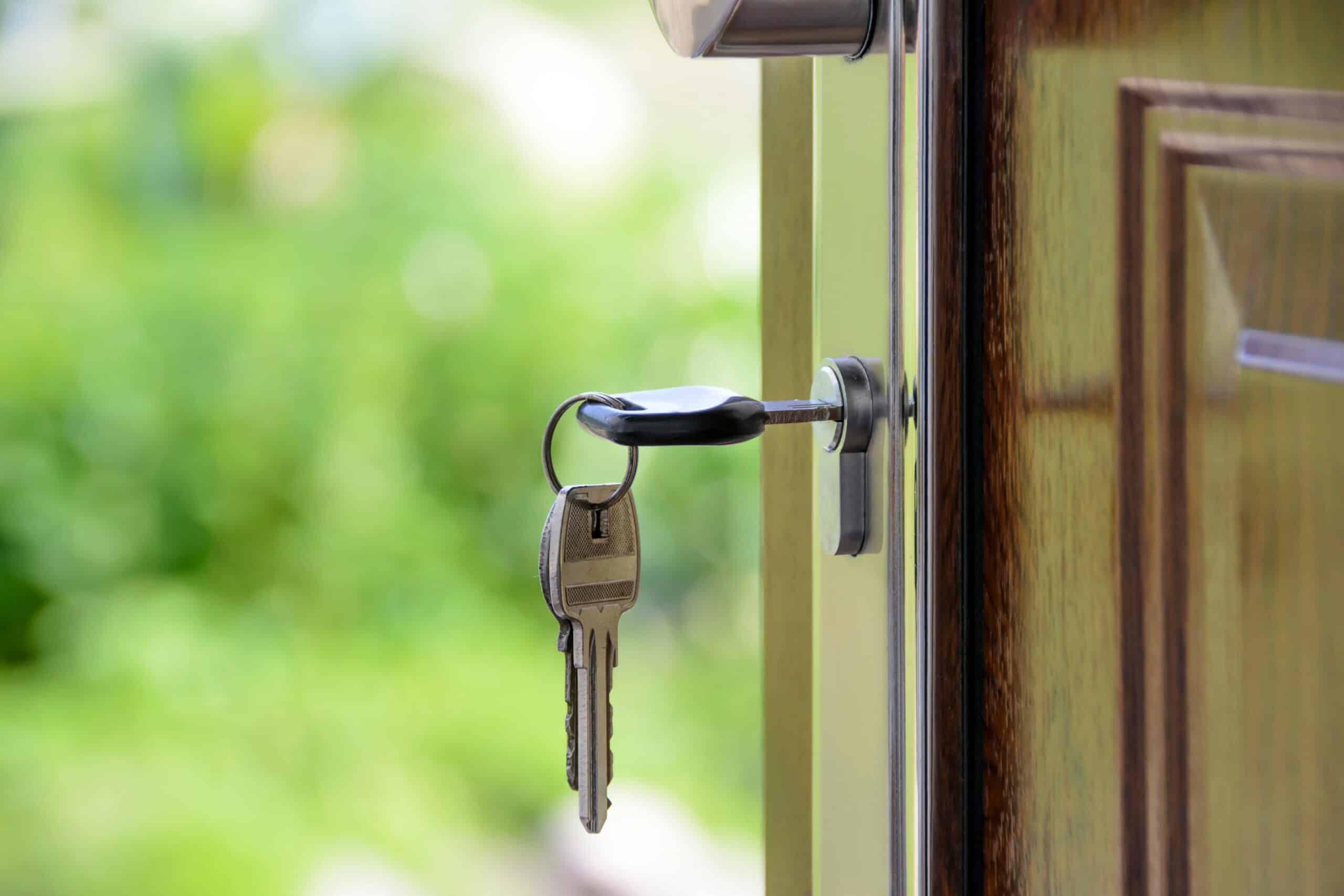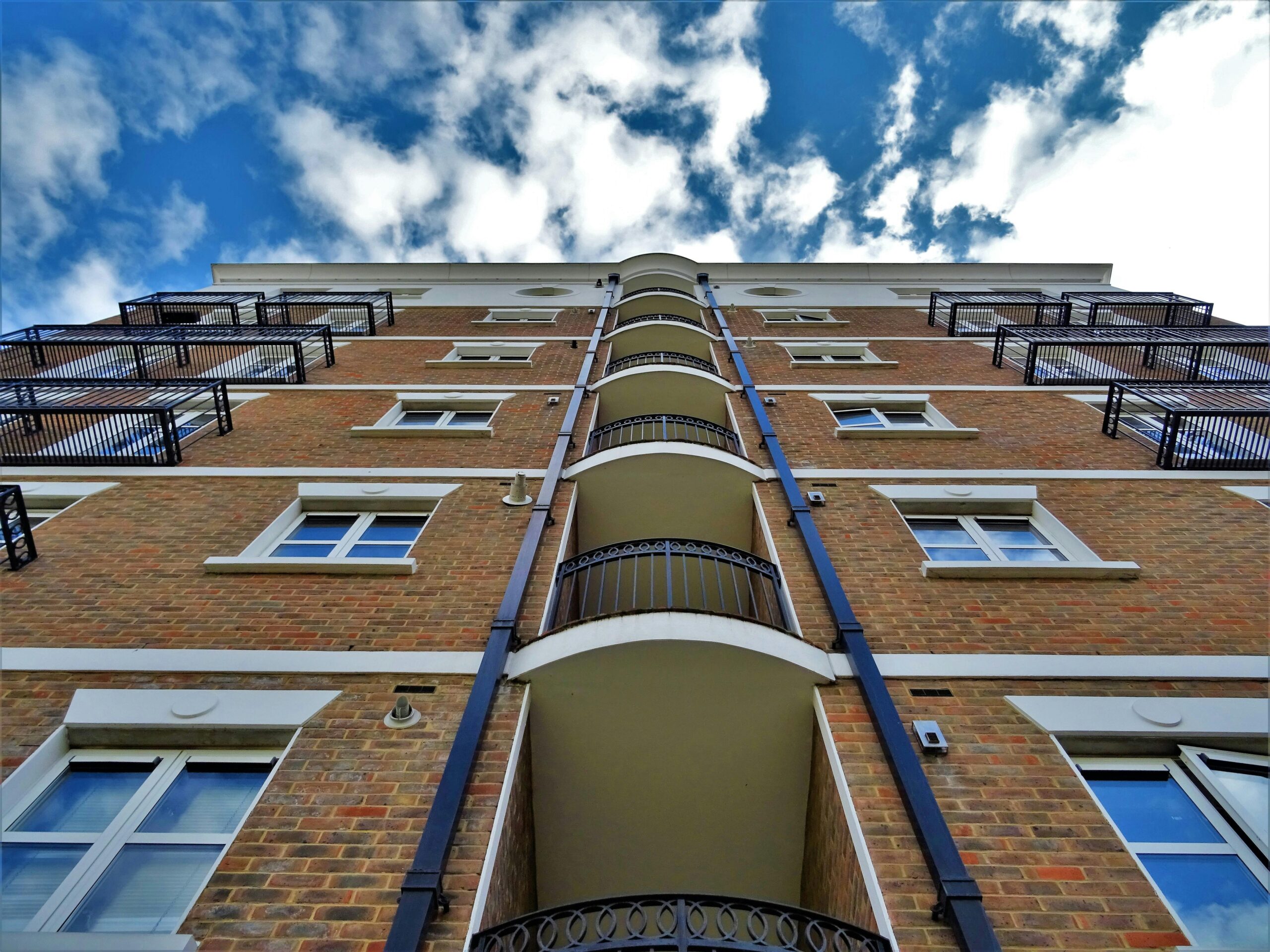
Landlord Insurance
Compare Landlord Insurance Quotes
- Complete one short form
- Quickly compare quotes
- Find a great deal today!

Compare insurance quotes from UK’s leading landlord insurers including:
Why Compare Landlord Insurance Quotes at SimplyQuote.co.uk
We understand that comparing landlord insurance policies can be a time-consuming, stressful, and overwhelming task. That’s why SimplyQuote, through its partnership with Quotezone, offers a comparison tool designed to simplify the process and make it easy to compare landlord insurance policies.
You can explore a range of competitive insurance premiums from reputable UK insurance providers. Whether you’re looking for simple building cover or additional extras like rent guarantee, public liability, or contents insurance for your property, SimplyQuote helps you find options suited to your needs.

What Is Landlord Insurance?
Landlord insurance is a type of home insurance that provides financial protection to landlords renting out one or more properties. It’s designed to protect landlords against the potential risks of renting out domestic or commercial properties.
At its core, landlord insurance is about protection and peace of mind.
It ensures property owners are covered for unforeseen events like natural disasters, accidents, or tenant-related damages. Buildings insurance is there to cover the financial pitfalls that accompany such events.
To avoid confusion, landlord insurance goes by many names:
- Buy-to-let insurance cover
- Property rental insurance
- Landlord buildings insurance
- Landlord home emergency cover/landlord emergency cover
- Rent guarantee insurance
- Rental house insurance
Do I Need Landlord Insurance?
While landlord insurance isn’t a legal requirement in the UK, it is beneficial to have.
A regular home insurance policy will not cover your property if it is rented. Renting to tenants will invalidate your home insurance policy, so you must upgrade to landlord insurance cover.
Building insurance is important because it gives you peace of mind knowing your rental property is in safe hands. Landlord insurance covers the costs of repairs and legal fees should any property-related accidents occur.
For instance; imagine the financial strain of needing to cover the out-of-pocket costs of burst pipes or significant water damage to your property. Or the legal costs involved when a tenant gets injured on your property due to faulty wiring or a broken stairwell. Additionally, if you’re a landlord with a buy-to-let mortgage, the lender requires landlord insurance cover as a condition of the mortgage agreement.

Looking for landlord insurance? Get your quote today!
Get Quotes
What Does Landlord Insurance Cover?
Landlord insurance covers various situations that can arise with rental properties.
It’s important to understand what your policy does and does not cover.
Here’s a quick breakdown of standard landlord insurance cover:
What’s covered
- Fire
- Theft
- Built-in features like fitted kitchens and bathrooms
- Furniture, carpets and curtains – excluding tenants possessions
- Burst and frozen pipes
- Eviction of squatters
- Loss or theft of keys
- Subsidence/heave – the movement of the property’s foundation
- Falling trees
- Vandalism
- Storm damage, extreme weather and natural disasters
- Accidental or malicious damage by tenants
What’s not covered:
- Claims due to poor maintenance of the property
- Tenant’s personal belongings
- Normal wear and tear
- Animal damage – such as rodent infestations or damage caused by pets
- Intentional damage by the insured person or tenant
- Existing damage before purchasing the policy
- Unoccupied properties (unless routinely maintained every 14 days)
Optional policy add-ons
- Rental protection insurance – if tenant payments are in arrears (i.e. lost rent)
- Loss of rental income due to uninhabitable property conditions
- Legal expenses in case you’re taken to court
- Accidental or intentional damage caused by tenants
- Public liability cover
- Boiler breakdown
What kind of properties does building insurance cover?
- Residential – if you own a buy-to-let property
- Commercial – business premises such as offices or warehouses
- Multi-property - if you have more than one rental property
- House in multiple occupation (HMO) insurance – usually not covered by standard landlord insurance
It’s important to find the right landlord insurance that aligns with your unique property and rental requirements. We’ll delve deeper into various types of landlord insurance policies available in the next section.
What Types of Landlord Insurance Policies Are Available In The UK
There are various landlord insurance policies to opt for in the UK, from landlord contents insurance to rent guarantee insurance.
Let’s take a closer look:
Landlord contents insurance
As the name suggests, landlord contents insurance covers the cost of repairing or replacing the contents of your property – the stuff that belongs to you.
This can include:
- Furniture
- Carpets
- Curtains
- Chairs
- Sofas
However, it doesn’t include any of your tenant’s belongings.
This is necessary if you’re renting a furnished property, or when you have valuable items you want to protect, like expensive light fittings or garden features.
Buildings insurance
Landlord buildings insurance covers the costs of repairing any malicious, accidental, or structural damage to your property.
This can apply to damage caused by:
- Fires
- Floods
- Storms
- Natural disasters
- Tenant-related damage
Unoccupied property insurance
Unoccupied property insurance specifically covers empty properties for an extended period, protecting against risks like theft, vandalism, and damage during vacancies.
However, the typical time window for this kind of cover varies between insurers but is often around one month.
Landlord liability
If your tenant or any of their guests injures themselves or has their belongings damaged because of your property, they are entitled to make a claim.
If they do, landlord liability insurance covers the price of your legal costs and any compensation you may have to pay.
Note: This cover is also known as landlord public liability insurance.
Rental income protection
This type of landlord insurance generally pays out if your building is damaged and you can’t rent it out. In short, it protects you against any lost income.
Note: This differs from unoccupied insurance as income protection covers you if your property is unrentable due to unforeseen accidents like flooding or malicious tenant damage. Essentially, it compensates your rental income when properties undergo repairs or renovations.
Rent guarantee insurance
Rent guarantee insurance – also referred to as tenant default insurance – offers financial security if your tenants can’t pay their rent.
Employers’ liability insurance
If you employ anyone at your rental properties such as caretakers, gardeners, or domestic cleaners, it’s a legal requirement to have employer’s liability insurance.
Landlord home emergency cover
Landlord emergency insurance provides round-the-clock assistance if an emergency arises. These unplanned events can include burst pipes, water leaks, or boiler breakdowns.
Business interruption
Business interruption ensures you continue to receive business income if your property can’t be occupied due to unforeseen events such as fires, natural disasters or renovations.
Pro tip: You don’t necessarily need to pay for all these types of insurance – you can just select the ones which are relevant to you. Most insurance providers will allow you to combine the different covers listed above. You can create a unique policy tailored to your specific requirements as a landlord.
Looking for landlord insurance? Get your quote today!
Get QuotesWhat Are The Benefits Of Property Rental Insurance For Landlords
Property rental insurance offers many advantages for landlords.
In this section, we’re taking a deep dive into the advantages of having specialist landlord insurance in place:
Peace of mind
Knowing you’re financially protected against unexpected events allows you to confidently focus on managing your rental property.
Financial security
A landlord insurance policy helps you avoid significant financial losses from unpredictable events such as water damage or accidental damage cover caused by careless tenants to your residential or commercial property.
Public liability coverage
As briefly mentioned, landlord liability insurance covers legal fees and medical expenses should a tenant or visitor suffer an injury on your property.
Loss of rental income protection
The right landlord insurance cover will compensate for lost income if your property becomes unlivable due to a covered event (e.g. safety hazard) or tenant default.
Streamlined management
Focusing on finding and managing tenants is easier when you have a landlord insurance policy.
Not having to worry about the potential financial stress is a weight lifted off your shoulders, allowing you to address issues easily.
Whether you rent out a single apartment or have multiple homes or commercial properties in your portfolio, landlord insurance cover is a worthwhile investment!

How Much Does Landlord Insurance Cost?
The average price paid for rental property insurance is around £160 – £180 per year; equating to roughly £13 to £15 per month.
However, the final price tag is based on the optional extras you may wish to add to your landlord insurance policy.
As a rough estimate, a three-bed, two-bath rental property (with a £200,000 rebuild cost) will cost £170 per year for building insurance cover only.
What influences landlord insurance costs?
Cover level
Pick the right cover for your rental property needs. For instance, if you rent furnished properties, you’ll want landlord contents insurance.
Ideally, you want to include landlord liability cover in your insurance policy as protection against potential legal disputes should tenants or guests become injured on your property.
Your property’s location
Your landlord insurance provider will base your premiums on your property’s location. You’ll likely pay higher insurance premiums if your rental property is in a high-crime or flood-prone area.
Property size and age
The size, age and overall structural integrity of your residential or commercial property will determine the final price of your insurance policy.
For instance, poorly maintained buildings are more susceptible to structural damage over time when compared to modern buildings.
Additionally, larger properties tend to have higher insurance premiums as there are bigger areas to insure compared to smaller rental properties.
Your tenants
The type of person(s) you rent your property to also plays a major role in determining your landlord insurance cost.
For instance, students are statistically ‘higher risk’ when compared to a young married couple or older folk.
Your claims history
Expect higher monthly/annual premiums if you have a negative claims history track record. This means, the more times you claim results in paying more for your landlord insurance.
How to avoid making claims:
- Regularly inspect your rental properties and attend to any issues as soon as they arise. This includes repairing or replacing windows, doors, or locks if/when broken.
- As mentioned, thoroughly screen your tenants before signing a rental agreement to eliminate suspicious behaviour of any kind.
- Educate tenants on how to properly maintain and care for rental properties, including ways to avoid accidental damage. You may find posters or brochures help convey these messages.
Payments
You can save money on your landlord insurance premiums when paying annually as opposed to paying monthly. This is because interest is added monthly.
Rental price
High-value real estate is typically associated with higher landlord insurance costs.
For instance, a high-end rental property in central London is typically in higher demand (and often has a higher value) than a modest home or commercial building on the city outskirts.
Additionally, landlords can charge higher monthly rentals for these kinds of buildings.
To get the most accurate idea of how much you’ll pay as a landlord, compare landlord insurance quotes from various insurance providers. This ensures you find a personalised fit to match your property needs and budget.
Quickly compare landlord insurance quotes at SimplyQuote.co.uk today!
How Can I Get Cheaper Landlord Insurance?
There are many ways to save money on your landlord insurance premiums, from choosing tenants carefully to keeping your property secure.
Here’s the breakdown:
Choose tenants wisely
Carefully reviewing and selecting tenants can reduce the risk of damage to your property, potentially leading to lower costs.
Up the security
Ensure your rental property is properly secured. This includes alarm systems, motion sensors and secure locks to deter burglars.
Opt for higher excess costs
Opting to pay higher excess fees can lower your monthly/annual premiums, but it means you’ll pay more upfront when making a claim.
Avoid unoccupied periods
Ensure your rental property has a constant flow of tenants to keep insurance premiums to a minimum.
Combine insurance policies
Bundling multiple insurance policies from one insurance provider can potentially lead to discounts.
Invest in property maintenance
Regular upkeep and quick repair to damaged infrastructure make your rental property low risk and can save you money in the long run.
How To Compare Landlord Insurance Quotes At SimplyQuote.co.uk
Whether you rent out a single property or have a large portfolio, specialist landlord insurance is a must.
It protects you against a wide range of risks, from lost rent to fire damage – and (almost) everything in between. It’s vital for the protection of both landlords and tenants.
Luckily, SimplyQuote.co.uk makes comparing landlord insurance options a breeze!
The comparison tool is 100% free and helps you explore competitive insurance deals tailored to your needs. All you have to do is fill out a short questionnaire about your property on our website and you’ll be provided you with an array of landlord insurance quotes tailored to your specific rental needs.
What do I need to do?
- Complete the online questionnaire, providing a few basic details such as your property and tenant details.
- Choose the level of cover you want.
- Sit back, relax and review the landlord insurance quotes provided from top UK insurance providers!
Looking for landlord insurance? Get your quote today!
Get QuotesFrequently Asked Questions
The difference between landlord-building insurance and home insurance is that landlord insurance is specifically designed to protect rental properties and landlords from the risks associated with renting out a property. Home insurance safeguards properties where the owner lives (i.e. their personal residence).
Multi-property landlord insurance in the UK is a specialised insurance policy that allows landlords to cover multiple properties under one comprehensive policy.
This is particularly beneficial if you have a mix of residential and commercial properties within your property portfolio. You can insure up to 25 properties under one landlord’s buildings insurance policy.
Tenant default insurance, also known as rental guarantee insurance, protects landlords in the UK against the risk of tenants failing to pay their rent.
Most landlords opt for insurance policies that include building insurance for fixtures and fittings and property owners’ liability insurance to cover any legal costs or disputes that should arise from someone being injured on one of your rental properties.
However, there are additional kinds of cover you can opt for, such as contents insurance if you rent out furnished properties.
Yes, building insurance for landlords is worth it. It provides essential protection for your rental properties and financial support when unexpected events arise.





